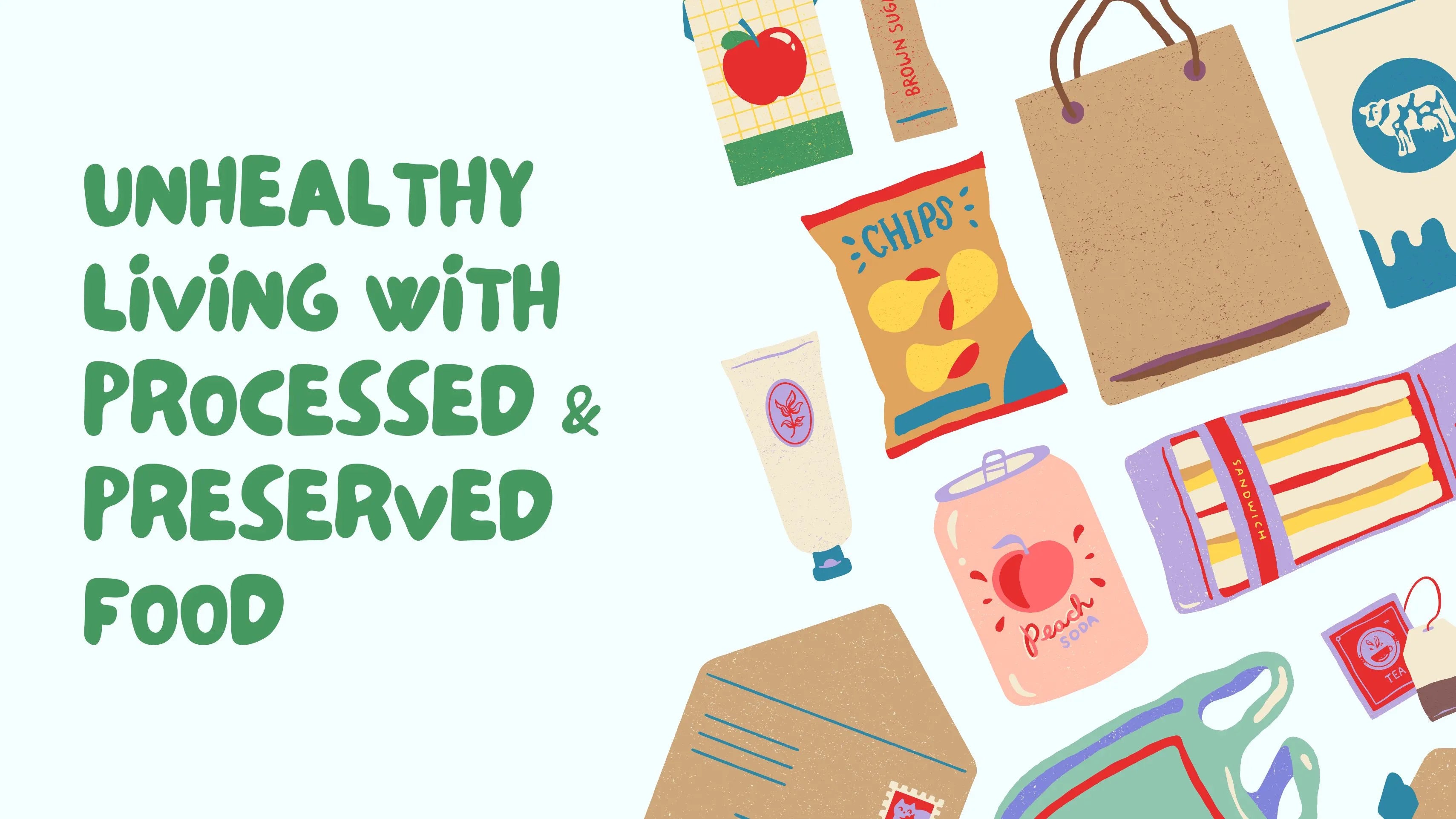In the hustle and bustle of modern life, convenience often takes precedence over health. Our fast-paced lifestyles leave us with little time to prepare wholesome meals, leading to a heavy reliance on processed foods and unhealthy eating habits. From midnight munching to relying on quick delivery services like Zomato, our choices are often detrimental to our well-being. In this article, we’ll delve into the perils of processed foods and explore the impact of unhealthy eating habits on our health.
Modern Lifestyles and Unhealthy Eating Habits
In today’s fast-paced world, time is a luxury many of us cannot afford. Balancing work, family, and social commitments leaves little room for meal preparation. As a result, we turn to processed foods that offer convenience but often compromise our health in the process.
1. Lack of Time for Cooking: With hectic schedules, many individuals find it challenging to dedicate time to cooking nutritious meals. Instead, they opt for pre-packaged, processed foods that are quick and easy to prepare.
2. Dependence on Processed Ingredients: Our reliance on processed ingredients such as refined oils, packaged masalas, and ready-to-eat meals contributes to a diet high in preservatives, additives, and unhealthy fats.
3. Reheating and Microwave Usage: Reheating food in microwaves is a common practice, but it can lead to nutrient degradation and the formation of harmful compounds in the food.
4. Shift from Traditional Cookware: Traditional earthen or copper cookware has been replaced by aluminum and non-stick pans for the sake of convenience, despite the potential health risks associated with aluminum exposure.
5. Midnight Munching and 24×7 Delivery Services: The availability of food delivery services like Zomato round the clock encourages midnight munching and unhealthy eating habits, disrupting our natural eating patterns and leading to overconsumption of calorie-dense foods.
Health Impacts of Processed Foods and Unhealthy Eating Habits
The rise in consumption of processed foods and the adoption of unhealthy eating habits have profound implications for our health:
1. Nutrient Deficiency: Processed foods are often stripped of essential nutrients during manufacturing and may lack the vitamins, minerals, and fiber found in whole foods. This can lead to nutrient deficiencies and compromised immune function over time.
2. Increased Risk of Chronic Diseases: Regular consumption of processed foods, high in refined sugars, unhealthy fats, and sodium, is associated with an increased risk of obesity, heart disease, type 2 diabetes, and certain types of cancer.
3. Digestive Issues: Processed foods often contain artificial additives, preservatives, and flavor enhancers that can disrupt gut health, leading to digestive problems such as bloating, gas, and constipation.
4. Impact on Mental Health: Poor dietary choices and irregular eating patterns have been linked to mood disorders, including depression and anxiety, highlighting the intricate connection between diet and mental well-being.
Tips for Making Healthier Food Choices
To combat the negative impact of processed food and unhealthy eating habits, it is essential to make conscious choices for a healthier lifestyle. Here are some tips for making healthier food choices:
1. Read food labels: Pay attention to the ingredients list and avoid foods that contain hidden additives and preservatives.
2. Incorporate whole, unprocessed foods: Focus on consuming fruits, vegetables, whole grains, lean proteins, and healthy fats. These foods are rich in essential nutrients and can help improve overall health.
3. Meal planning and preparation: Take the time to plan and prepare meals in advance. This will help avoid reliance on processed food options when time is limited.
Role of Millets and Gluten-Free Diet
To combat the adverse effects of processed foods and unhealthy eating habits, incorporating nutrient-rich alternatives into our diet is essential. Millets, gluten-free grains rich in fiber, vitamins, and minerals, offer a sustainable and wholesome option for nourishing our bodies:
1. Nutrient Density: Millets such as quinoa, amaranth, and sorghum are packed with essential nutrients, making them an excellent substitute for refined grains in our diet.
2. Gluten-Free Options: Gluten-free diets, which exclude wheat, barley, and rye, can benefit individuals with gluten intolerance or celiac disease, promoting better digestion and overall health.
3. Diversifying Food Choices: Incorporating a variety of whole foods, including fruits, vegetables, legumes, and lean proteins, ensures a balanced diet rich in essential nutrients and antioxidants.
In conclusion, the modern lifestyle’s sedentary nature and reliance on processed food have contributed to the obesity epidemic and poor nutrition in our society. It is crucial to be aware of the negative consequences of processed food and unhealthy eating habits and make conscious choices for a healthier lifestyle. By reading food labels, incorporating whole, unprocessed foods, and prioritizing meal planning and preparation, we can take control of our health and well-being.
Remember, every bite we take is an opportunity to nourish our bodies and cultivate a healthier future for ourselves and generations to come. Let’s make informed choices today for a healthier tomorrow.


